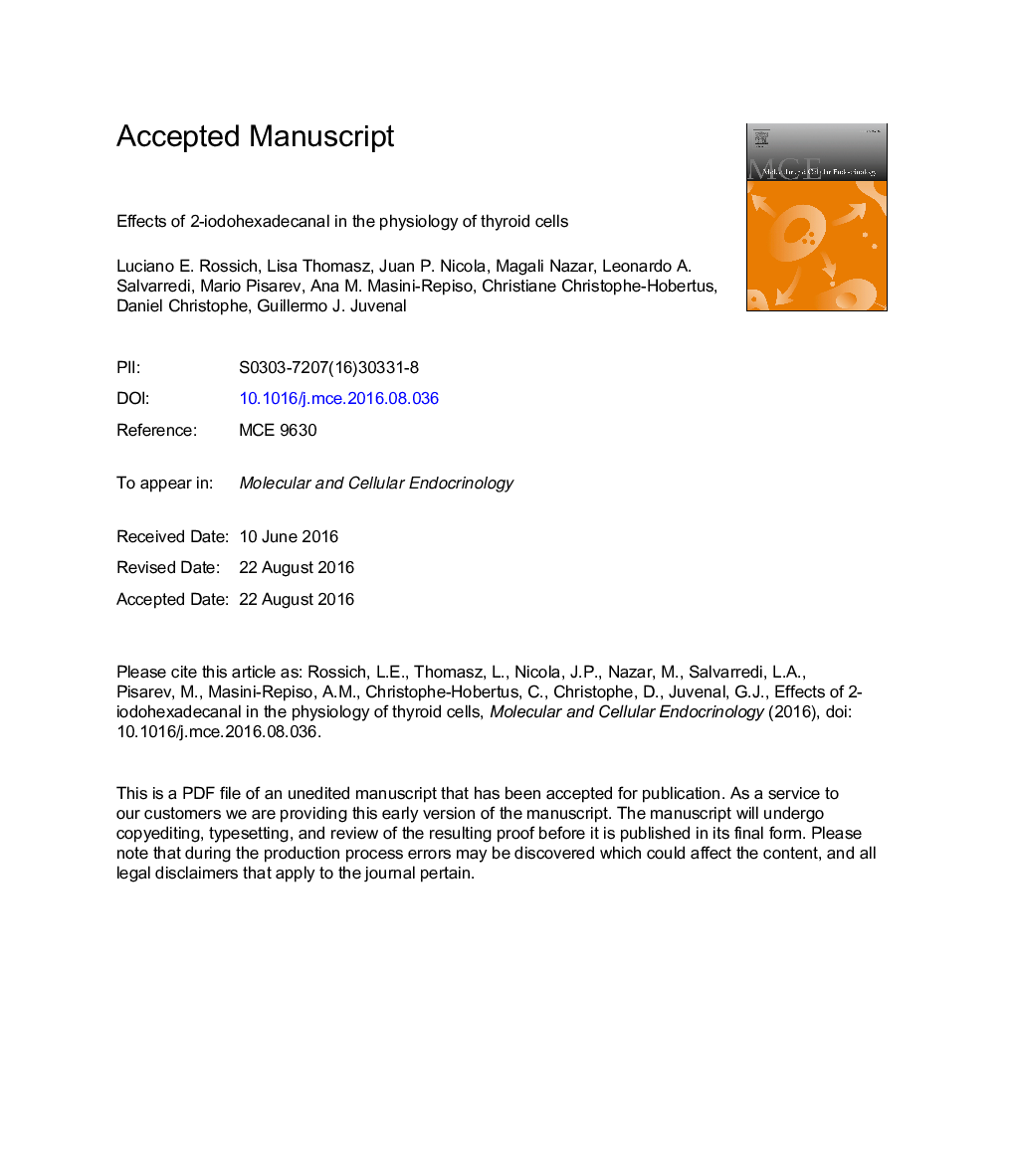| Article ID | Journal | Published Year | Pages | File Type |
|---|---|---|---|---|
| 8476695 | Molecular and Cellular Endocrinology | 2016 | 28 Pages |
Abstract
Iodide has direct effects on thyroid function. Several iodinated lipids are biosynthesized by the thyroid and they were postulated as intermediaries in the action of iodide. Among them, 2-iodohexadecanal (2-IHDA) has been identified and proposed to play a role in thyroid autoregulation. The aim of this study was to compare the effect of iodide and 2-IHDA on thyroid cell physiology. For this purpose, FRTL-5 thyroid cells were incubated with the two compounds during 24 or 48Â h and several thyroid parameters were evaluated such as: iodide uptake, intracellular calcium and H2O2 levels. To further explore the molecular mechanism involved in 2-IHDA action, transcript and protein levels of genes involved in thyroid hormone biosynthesis, as well as the transcriptional expression of these genes were evaluated in the presence of iodide and 2-IHDA. The results obtained indicate that 2-IHDA reproduces the action of excess iodide on the “Wolff-Chaikoff” effect as well as on thyroid specific genes transcription supporting its role in thyroid autoregulation.
Keywords
Related Topics
Life Sciences
Biochemistry, Genetics and Molecular Biology
Cell Biology
Authors
Luciano E. Rossich, Lisa Thomasz, Juan P. Nicola, Magali Nazar, Leonardo A. Salvarredi, Mario Pisarev, Ana M. Masini-Repiso, Christiane Christophe-Hobertus, Daniel Christophe, Guillermo J. Juvenal,
